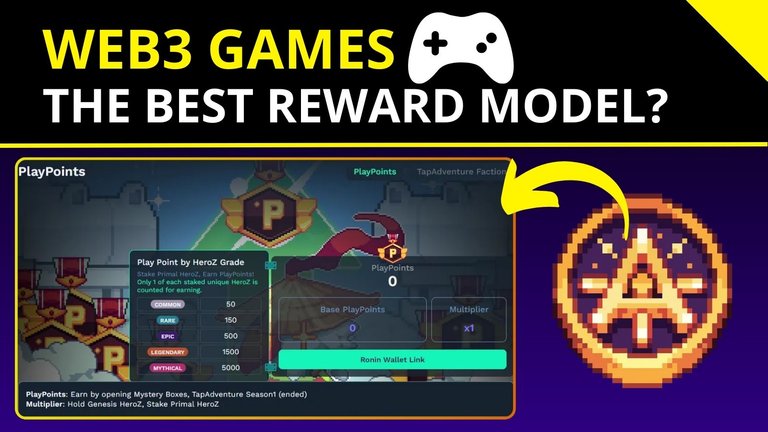
Web3 Games have already become part of the crypto ecosystem, making up a considerable part of users' daily activities. However, when compared to the traditional gaming market, this number still has a lot to improve, with more developed games and large studios creating attractive games for audiences outside of Crypto to be interested in playing. With that, a big point to be considered is the issue of rewards, which is the big differentiator of these games. Come and find out a little more about some of the most used models.
I'll be much appreaciated if you Upvote, Reblogs or give any Tips ( PIZZA 🍕, PGM 🎮, LOLZ 😆, ALIVE ❤️, etc ). Thanks and have good reading! 🍀

[ENGLISH VERSION]
Play To Earn

The first way to reward players in Web3 Games was through the Play to Earn model, which allowed players to exchange and trade what they earned in the game as Tokens or NFTs with other players. This model guarantees greater ownership and control to players, because it gives them control over what to do with what they have achieved by investing their hours of play; they can choose to improve their character or exchange their resources in decentralized marketplaces.
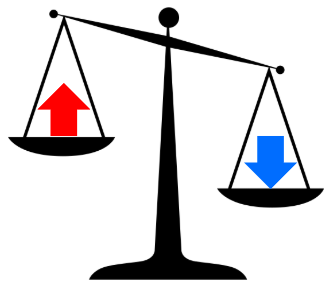
However, of the various games that implemented this type of model without first thinking about the economic issue, they ended up having great growth at the beginning and later, with the massive sale of resources, the value of the items tended to zero, because there was a supply of almost 100% and a demand close to 0%, that is, players wanted to sell everything and there was no one wanting to improve the account thinking in the long term since there was no sustainability.
Ranking x Competition
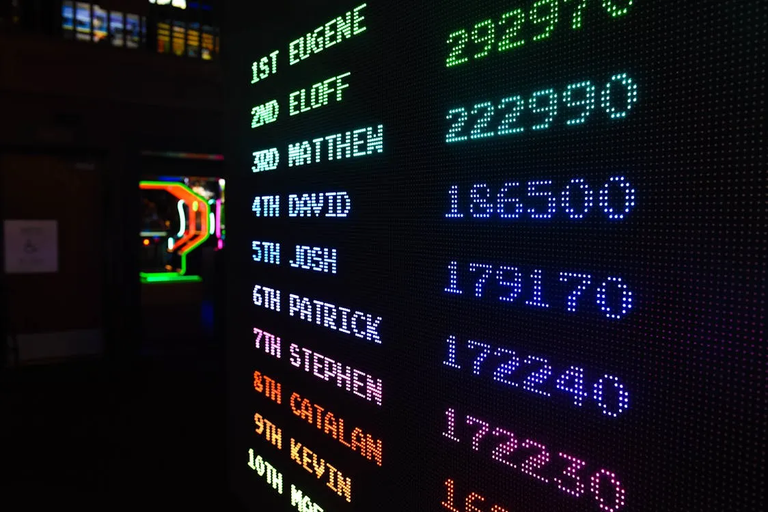
The second model that began to be used was the Ranking, which consisted of rewarding the best players through a Leaderboard, where the X best in the Ranking would receive the reward. This economic system keeps players involved, always seeking to improve their account in order to move up in position and also always creates the doubt that someone could end up passing their position at any time. The problem arises in how to balance this system so that new players are encouraged to participate as well and it does not always remain in the hands of the same users. A possible solution would be to reset the rankings at the end of the season perhaps…
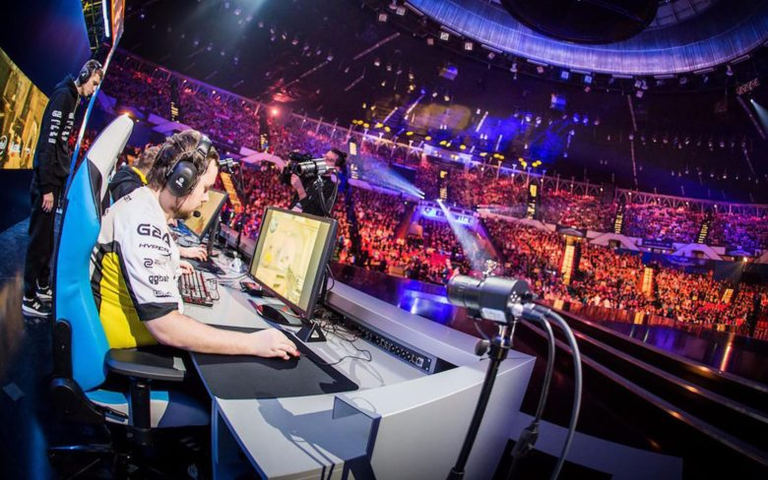
In web2 games the element of competition is very strong and is mainly seen in team games such as CS GO or LOL, in which one team must defeat the other to win the competition. This competitive spirit contributes greatly to the game's economy, because it encourages organizations to form professional teams to participate in events that pay large prizes. It also creates a more engaged community of fans who root for their team to be victorious. However, what is most common to observe are game competitions giving rewards of items linked to the game, which limits the usefulness and has no real value outside of it.
Play to Airdrop
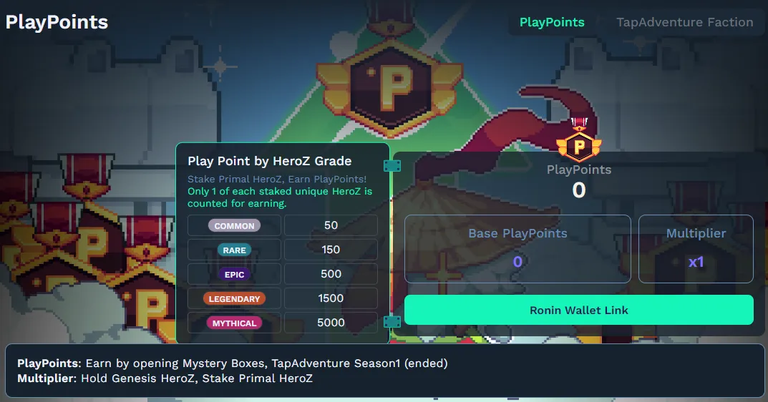
Recently a new rewards model has become increasingly present, which is Play to Airdrop, which is a way of reward players with tokens and in-game items, depending on the score they manage to achieve in a given period. This system limits the amount of resources that players can achieve because it is usually an amount already separated from the Token's tokenomics and is democratic since everyone can participate normally. One example is Pixel Heroes Adventure, which will reward players with the $ADVTR token, depending on the amount of PlayPoints they have accumulated during the period.

However, there is always a problem that needs to be solved when it comes to Web3 Games. This time, the issue is that the development team usually prepares a whole plan for the Airdrop, but does not have a plan for what will happen when the airdrop ends and there are no more direct incentives for players. The main point is to ensure sustainability in the game economy thinking in the long term and for that it is important to think about Fun and Updates that will make the game interesting for players have fun and still have ownership of their assets.


Os Jogos Web3 já se tornaram parte do ecossistema crypto, compondo uma parte considerável das atividades dos usuários diariamente. Entretanto, quando comparado ao mercado de jogos tradicionais esse número ainda tem muito a melhorar, com jogos mais desenvolvidos e grandes estúdio criando jogos atraentes para o público de fora de Crypto se interessar em jogar. Com isso, um grande ponto a ser considerado é a questão das recompensas que é o grande diferencial desses jogos. Venha descobrir um pouco mais sobre alguns dos modelos mais utilizados.
Fico agradecido se você upder dar um Upvote, Reblogs ou algum Tips ( PIZZA 🍕, PGM 🎮, LOLZ 😆, ALIVE ❤️, etc ). Obrigado e boa leitura! 🍀

[VERSÃO PORTUGUÊS]
Play To Earn

A primeira forma de recompensar os jogadores nos Jogos Web3 foi através do modelo Play to Earn, em que permitia os jogadores trocarem e comercializarem o que eles conseguirem no jogo como Tokens ou NFTs com outros jogadores. Esse modelo garante uma maior propriedade e controle aos jogadores, porque dá a ele o controle do que fazer com o que ele conseguiu ao investir suas horas de jogo, ele pode escolehr melhorar o seu personagem ou trocar os seus recursos em marketplaces descentralizados.

Entretanto, dos diversos jogos que implementaram esse tipo de modelo sem antes pensar na questão econômica, acabaram por ter um grande crescimento no início e posteriormente com a venda massiva dos recursos o valor dos itens tendeu a zero, porque havia uma oferta de quase 100% e uma demanda próxima de 0%, ou seja, os jogadores queriam vender tudo e não tinha ninguém querendo melhorar a conta pensando no longo prazo já que não havia nenhuma sustentabilidade.
Ranking x Competição

O segundo modelo que começou a ser usado foi o Ranking, que consistia em recompensar os melhores jogadores através de uma Leaderboard, onde os X melhores do Ranking receberiam a recompensa. Esses sistema econômico faz com que os jogadores se mantem envolvidos, buscando sempre melhorar a sua conta visando subir na colocação e também gera sempre a dúvida de que alguém pode acabar passando a sua posição à qualquer momento. O problema surge em como balancear esse sistema para que novos jogadores sejam incentivados à participar também e não fique nas mãos dos mesmos usuários sempre. Uma possível solução seria o reset dos ranking ao final das season talvez…

Nos jogos web2 o elemento da competição é muito forte e é visto principalmente em jogos de equipe como o CS GO ou LOL, em que uma equipe deve derrotar a outra para ganhar a competição. Esse espírito competitivo colabora muito para a economia do jogo, porque incentiva organizações à formar equipes profissionais para participar dos eventos que pagam grandes prêmios. Ainda, forma uma comunidade mais engajada de fans que torcem para a sua equipe ser vitoriosa. Entretanto, o que é mais comum de se observar são as competições dos jogos dando recompensas de itens vinculados ao jogo, que limita a utilidade e não tem um valor real fora de lá.
Play to Airdrop

Recentemente um novo modelo de recompensas tem se tornado cada vez mais presente, que é o Play to Airdrop, que é uma forma de recompensar os jogadores com tokens e items do jogo, conforme a pontuação que eles conseguem alcançar em um determinado período. Esse sistema limita a quantidade de recursos que os jogadores podem alcançar porque geralmente é uma quantidade já separada do tokenomics do Token e é democrática já que todos podem participar normalmente. Um exemplo é o Pixel Heroes Adventure que vai recompensar os jogadores com o token $ADVTR, conforme a quantidade de PlayPoints que eles acumularam durante o período.

Entretanto, para que sempre existe um problema que falta ser resolvido quando o assunto é Web3 Games. Dessa vez, a questão é que geralmente a equipe de desenvolvimento elabora todo um planejamento para o Airdrop, mas não tem um plano para o que vai acontecer quando o airdrop acabar e não houver mais incentivos para os jogadores de forma direta. O ponto principalmente é garantir uma sustentabilidade na economia dos jogos pensando no longo prazo e para isso é importante pensar na Diversão e nas Atualizações que vão deixar o jogo interessante para que os jogadores se divirtam e ainda assim tenham o Ownership dos seus ativos.


If you like Crypto, Play2Earn, Finance or Anime content, consider FOLLOW me, that way you'll receive a notification when new post is done.
Thank you for reading. See ya! 👋👋
Posted Using InLeo Alpha
